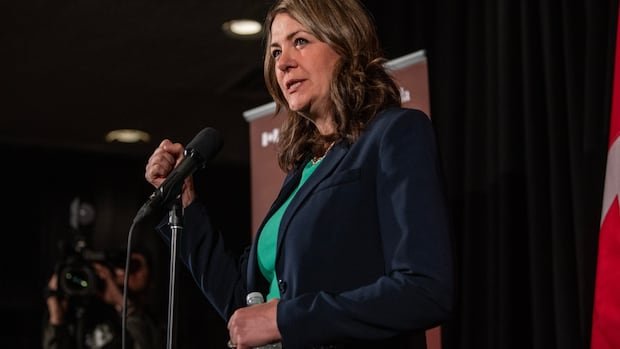Educators and advocates for literature have the Edmonton Public School Board to acknowledge for the Alberta government’s decision to revise its directive prohibiting sexually explicit books in school libraries. Following the board’s removal of approximately 200 books, which encompassed renowned works by authors like Maya Angelou and Margaret Atwood, as well as popular titles such as “Brave New World” and “Game of Thrones,” Premier Danielle Smith criticized the action as excessive compliance. She clarified that the government never intended to ban literature of that nature.
In response to the controversy, Alberta’s education minister announced a temporary halt to the two-month-old book restriction policy. The aim is to align the bans imposed by boards more closely with the original intentions of the government. To illustrate the type of content deemed inappropriate, Smith showcased excerpts from graphic novels during a live-streamed news conference, emphasizing the need to remove sexually explicit material unsuitable for young students.
Smith emphasized the importance of protecting children from explicit content, stating that what is inappropriate for adult viewers should not be accessible to seven-year-olds. This sentiment resonated with attendees at a recent town hall event in Fort McMurray, reflecting the support for the government’s initiative within the United Conservative base. Smith’s primary focus has been on visual depictions of explicit content, rather than dictating specific reading materials.
The government’s order, spearheaded by Education Minister Demetrios Nicolaides, targeted all forms of sexual content within libraries, including written, illustrated, and photographic material. This broad approach has raised concerns about potential censorship and the need for a nuanced understanding of content deemed inappropriate. While the revised directive may distinguish between visual and written content, it is anticipated to generate ongoing debate and international scrutiny surrounding Alberta’s book ban.
Critics argue that the focus on visual imagery may lead to unintended consequences, such as self-censorship among librarians and the restriction of diverse literary works. The controversy mirrors similar debates in the United States, where graphic novels have been at the center of cultural disputes over censorship and acceptable content in educational settings. Despite efforts to clarify the policy, the government’s emphasis on explicit images may not assuage the concerns of those opposed to the book ban.


